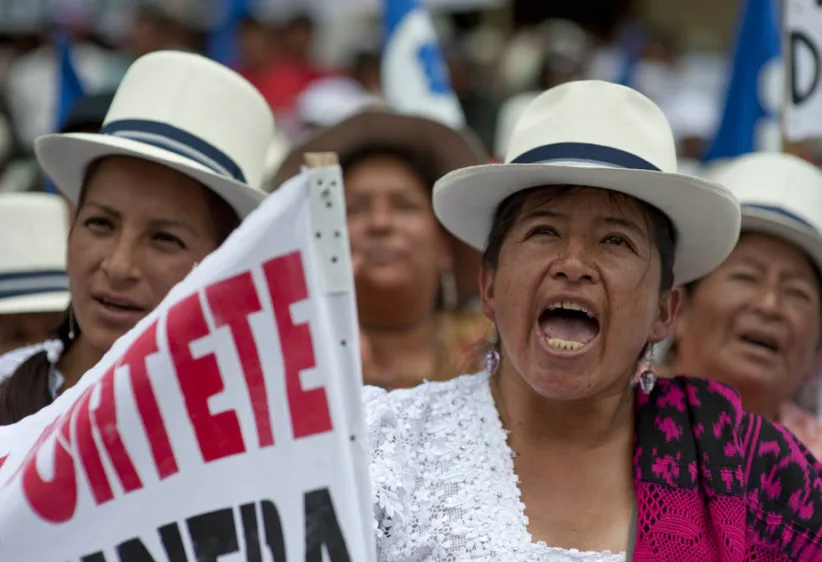Ecuador

In the period 2007-2017, the state assumed a more powerful role and economic and social reforms brought positive results. People’s organisations were active in developing the new constitution, approved by referendum in 2008, which recognizes Ecuador as a plurinational state and fundamental rights for all, including the nature.
Since 2017, there has been a rapid return to international indebtedness, and structural adjustment policies, including disinvestment in infrastructure, social security and public services. There is also a serious security crisis with increasing criminal violence penetrating all levels of society and its institutions. The State’s response has been to “declare war on terrorist gangs “, with successive states of exception and militarization. This is a new challenge, as armed violence was common in neighbouring countries, but not in Ecuador.
Partners’ agendas include defending their territories and natural resources, food sovereignty, collective rights and indigenous justice, and the implementation of free, prior and informed consent (FPIC) and UNDROP (United Nations Declaration on the Rights of Peasants and Other People Working in Rural Areas). They also work to enhance gender equality within the organisations and in communities.
The popular movement, particularly the indigenous, has shown great capacity for organizing and mobilising enabling them to prevent measures harmful for their constituencies. There has been an increase of alliances between rural organisations and popular urban sectors to confront the negative effects of neoliberal policies.
Programme
The Norwegian People’s Aid programme in Ecuador began in 1985. We cooperate with farmers and indigenous peoples’ organisations that are working for reduced social, economic and political inequality at both national and local levels.
NPA supports partners’ organisational development, including their efforts to strengthen their internal democratic structures and processes, such as assemblies and congresses, their communication channels, alliance building, and their organisational and political training programs. The training programmes include history, economics and politics, indigenous people’s rights, gender equality and women’s rights, as well as leadership, organising, and technical capacities related to agroecology, including processing agricultural products and accessing markets.
These trainings provide them with better tools to strengthen their organisations, develop their agendas and policies to address the challenges they are facing, as well as methods and means to mobilise people and influence decision-making.
Fast facts
- Around 25 % of the population of 16 million are indigenous people.
- Ecuador has long traditions of popular organization and a strong indigenous peoples’ movement.
- Women mobilise for women’s rights and challenge conservative, patriarchal values.
- The NPA regional office for Latin-America lies in Quito, Ecuador.
